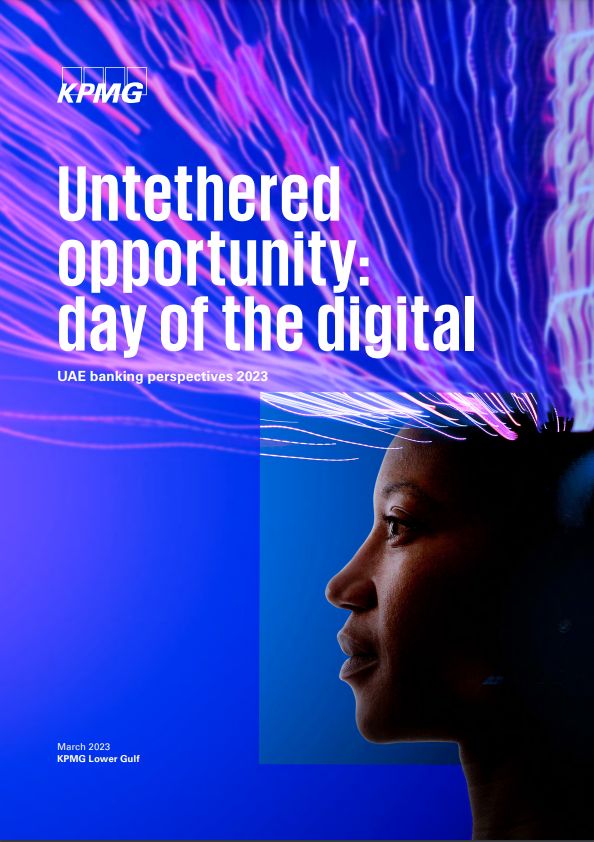The month of March was fraught with challenges for the global banking sector. In spite of international volatility, UAE banks are relatively well placed to manage the contagion risk from this due to limited lending activity in the United States. Most of their assets in the US are likely to be high-credit quality instruments or with the US Federal Reserve Bank. In light of their strong funding and liquidity profiles, and expected government support in case it is needed, the probability of UAE banks having to sell meaningful volumes of investment securities appears limited.
If they did, and all unrealized losses crystallized, the impact would be less than 25% of their 2022 net income on average, resulting in an impact of approximately 60 basis points on the capital adequacy ratio of the top ten banks. If these number were to further deteriorate, which is possible, we would expect extraordinary government support in line with its robust track record of supporting banking systems in times of stress. Nevertheless, 2022 was a promising year, with total assets increasing by 10.6% year-on-year, driven by strong growth in deposits, loans and advances. The top ten UAE listed banks analyzed in this publication reported robust operating and financial performances in 2022, with a 31% increase in their net profits.
This is mainly due to an increase in net interest income, on account of higher interest benchmark rates and lower impairment charges compared to FY21, resulting from improved asset quality and credit worthiness of borrowers. The cost to income ratio during the year also improved by 1.8% on average and banks maintained sufficient capital levels well above the minimum regulatory requirements. The UAE is well placed to tackle the impact of the ongoing recession due to its strong liquidity and capital position. For the third consecutive year, KPMG partnered with social media analytics company, DataEQ, to analyze the key drivers of consumer satisfaction amongst major UAE banks. Although there were overall improvements in “net consumer sentiment” across the banks analyzed, the topic of customer service generated the highest volume of negative conversation. The biggest pain points for customers were slow turnaround time, non-responsiveness and staff competency issues.
Digital enablement
As consumers become more dynamic and demanding in the ways they interact with banks, global commercial banks are seeking opportunities to deliver technologyenabled services that go beyond traditional banking. The growing demand for digital financial services and the rapid adoption of fintech solutions are driving constant growth, enhancing the customer experience and industry competitiveness. For instance, UAE banks including Emirates NBD are exploring the metaverse as a new channel to provide financial services to their customers and connect with the larger banking ecosystem.
An essential element of banks’ digital growth strategies is cloud adoption. The banking sector is implementing the cloud in a hybrid mode; combining on-premise private cloud and public cloud (software as a service and infrastructure as a service) to provide benefits including scalability, flexibility and cost effectiveness.
Another key consideration for banks making their transition into the cloud is developing a multi-cloud strategy. A multi-cloud infrastructure provides a solid foundation for IT resilience and greater agility, and enables banks to leverage cloud service providers (CSPs) and avoid vendor lock-in. Financial institutions in the UAE would do well to consider multi-cloud hosting environment strategies as there are a number of CSPs already operating in the country. At a micro level, this would allow organizations to reap the benefits of tailoring workloads to CSPs on fitness-for-purpose. This can also significantly enhance their operational resilience at a macro level.
The increasing cost of risk
Today’s global economy is experiencing a rise in costs of risk resulting from the increasing risk of recession. Almost 89% of global financial services CEOs are expecting a recession in the next 12 months. 57% of CEOs however believe the recession will be mild and brief. This uncertain geopolitical and macroeconomic environment presents challenges involving operational costs and loss of income. In times of economic uncertainty, banks should have strong early warning systems to reassure their external stakeholders of their readiness to react to these emerging conditions. A shift in mindset is also necessary for effective and proactive risk management. Banks can no longer depend on their existing early warning systems, which are built on indicators with a high percentage of false positives and a backward-looking perspective. Therefore, by leveraging technology, banks can gain real-time insight into risks and achieve a predictive advantage.
The green revolution
The green financing market in the UAE is experiencing rapid growth, with ADGM and SCA aiming to establish their carbon trading platforms. ADGM, in collaboration with AirCarbon Exchange, is developing the world's first regulated voluntary carbon trading exchange. This innovative approach shifts the perception of carbon from a global issue to an investment opportunity. The UAE SCA is in talks with the Ministry of Climate Change and Environment to create a carbon trading scheme. While crucial for the UAE's net-zero goal by 2050, it's important to note that carbon credits and offsets provide a short-term solution and should be phased out of global emissions reduction strategies for sustained decarbonization and sustainability goals.
Compliance on the rise
Over the last three years from 2019 till early 2022, the Middle East recorded a 63% increase in the size of its organizations’ compliance teams. The total projected cost of financial crime compliance was USD 4.2 billion in early 2022, with the UAE representing a sizeable chunk of this at USD 1.7 billion (40%). It is anticipated that compliance functions will implement technology platforms to maintain and monitor regulatory obligations, enabling compliance risk assessments, alerting potential noncompliance incidents, and allowing action plan tracking. Abbas Basrai Partner, Head of Financial Services KPMG Lower Gulf They are also likely to integrate existing technology platforms with compliance/GRC platforms to streamline workflows, and adopt innovative RegTech solutions to automate their operations.
Combatting financial crime remains a key challenge for the banking sector and the deployment of machine learning (ML) and artificial intelligence (AI) for financial crime detection is also expected to accelerate. In addition, financial crime compliance will be purposeled and will focus more on effectiveness, concentrating on outcomes rather than outputs. Advancements in technology and data will also result in new ways to approach know-your-customer (KYC) and customer due diligence (CDD) procedures in the next ten years.
The human angle
The rise of emerging technologies and automation in the banking sector is reshaping the future workforce, leading to the creation of new jobs in areas such as fintech, data analytics and cyber security. Banks in the UAE are enthusiastically embracing these technologies, investing in innovative solutions and promoting hybrid work environments to enhance productivity and optimize costs.
On behalf of KPMG Lower Gulf, we would be delighted to further discuss the topics within this publication. We are also deeply appreciative of the response elicited by last year’s report and look forward to exploring future opportunities for your organization, together. Please contact me or our featured authors if you have any queries or would like to take a deeper dive into the content of UAE banking perspectives 2023.
Download center
Contact us
Connect with us
- Find office locations kpmg.findOfficeLocations
- kpmg.emailUs
- Social media @ KPMG kpmg.socialMedia
Stay up to date with what matters to you
Gain access to personalized content based on your interests by signing up today













